Grind and Profile the Floor
We mechanically grind the concrete to open the pores, remove contaminants, and create the ideal surface for the coating to grab onto.

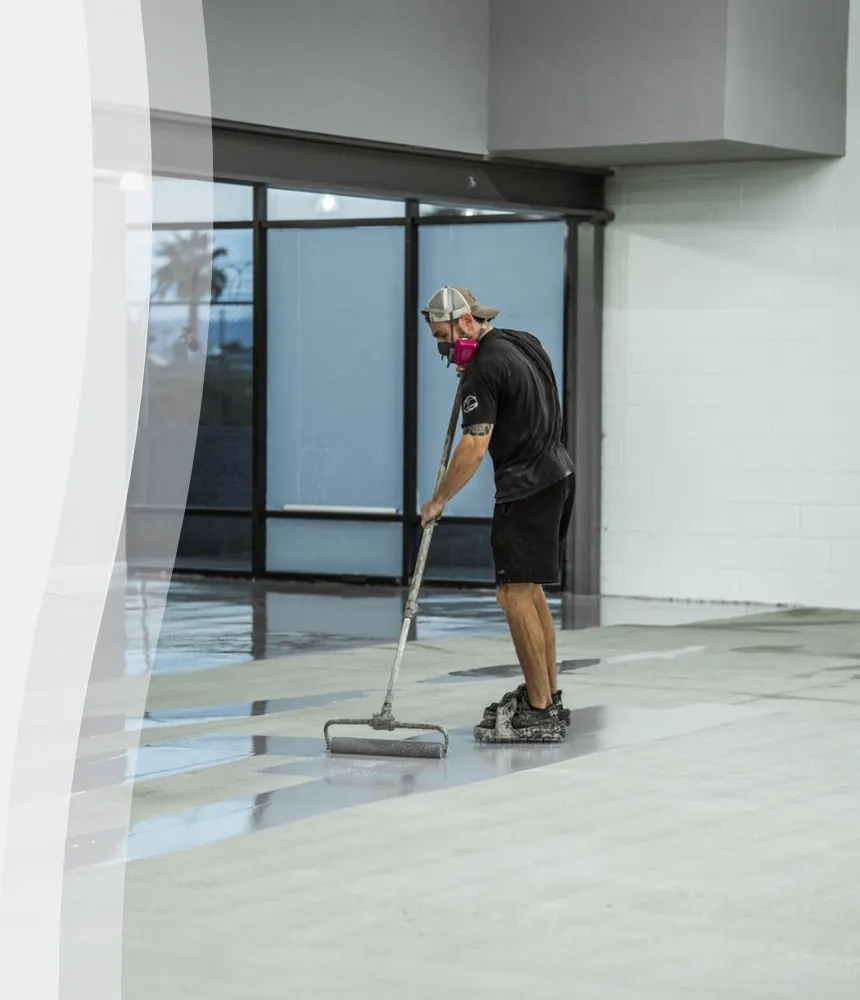




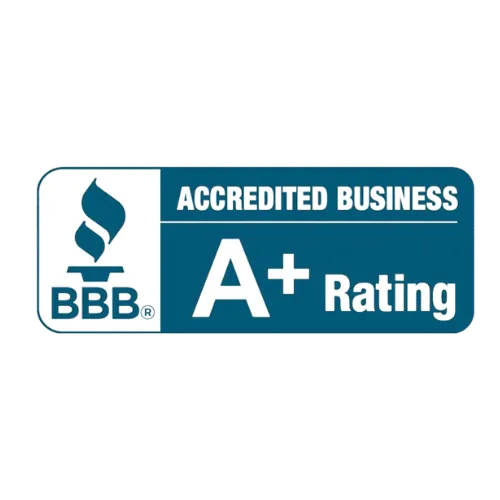
Providing high-quality garage flooring solutions is our specialty, but that is not all. We offer numerous other services that can enhance all kinds of concrete surfaces.
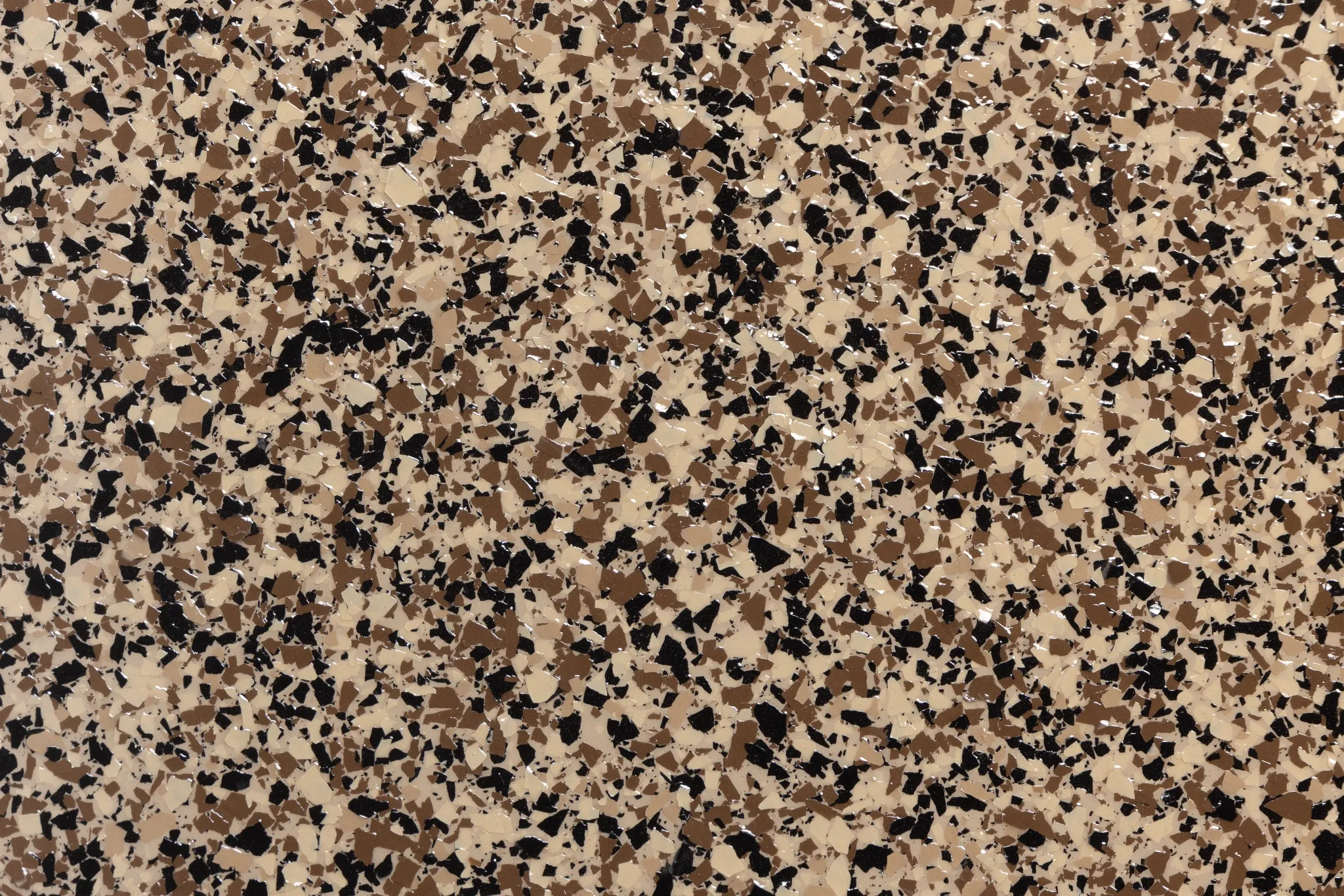


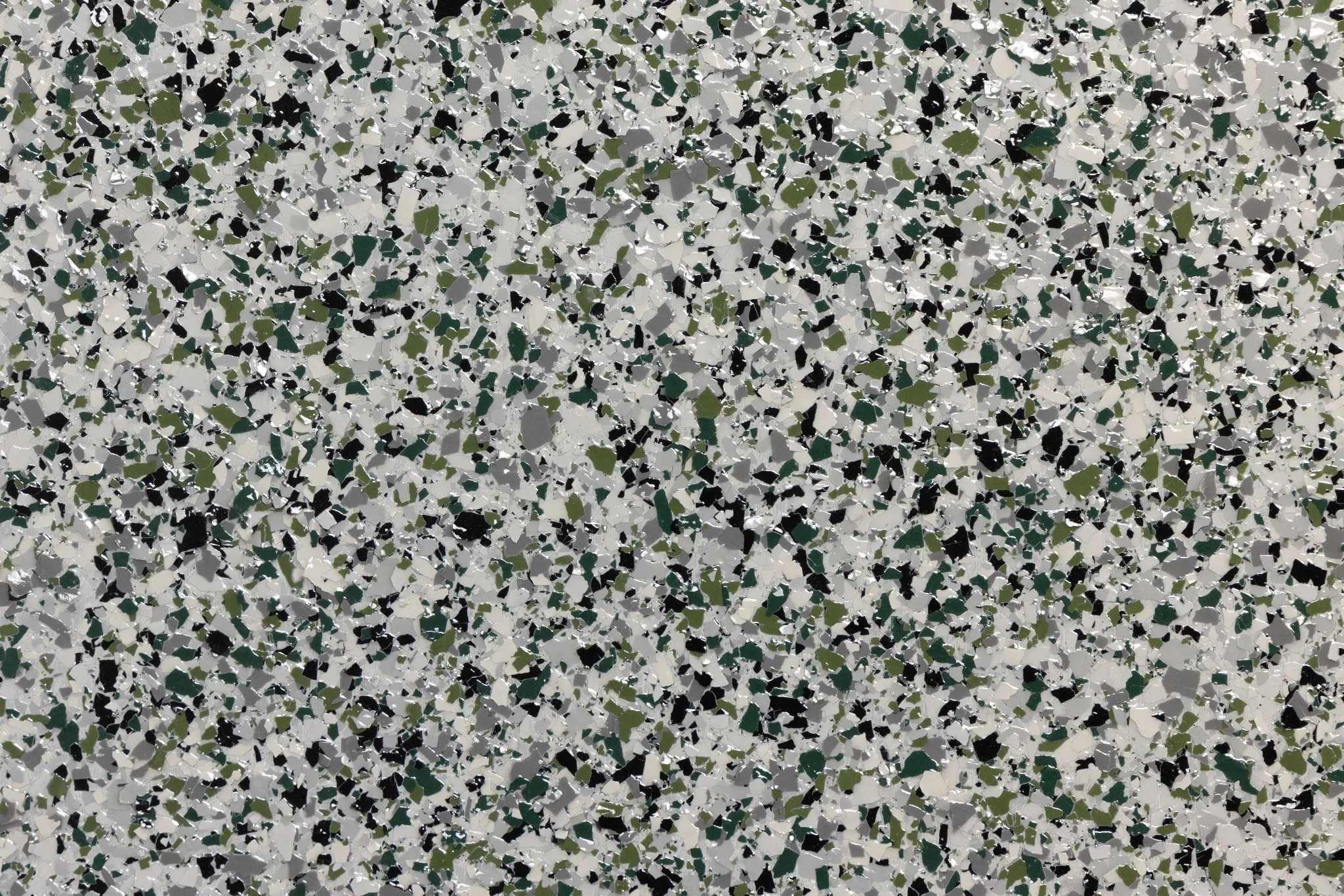
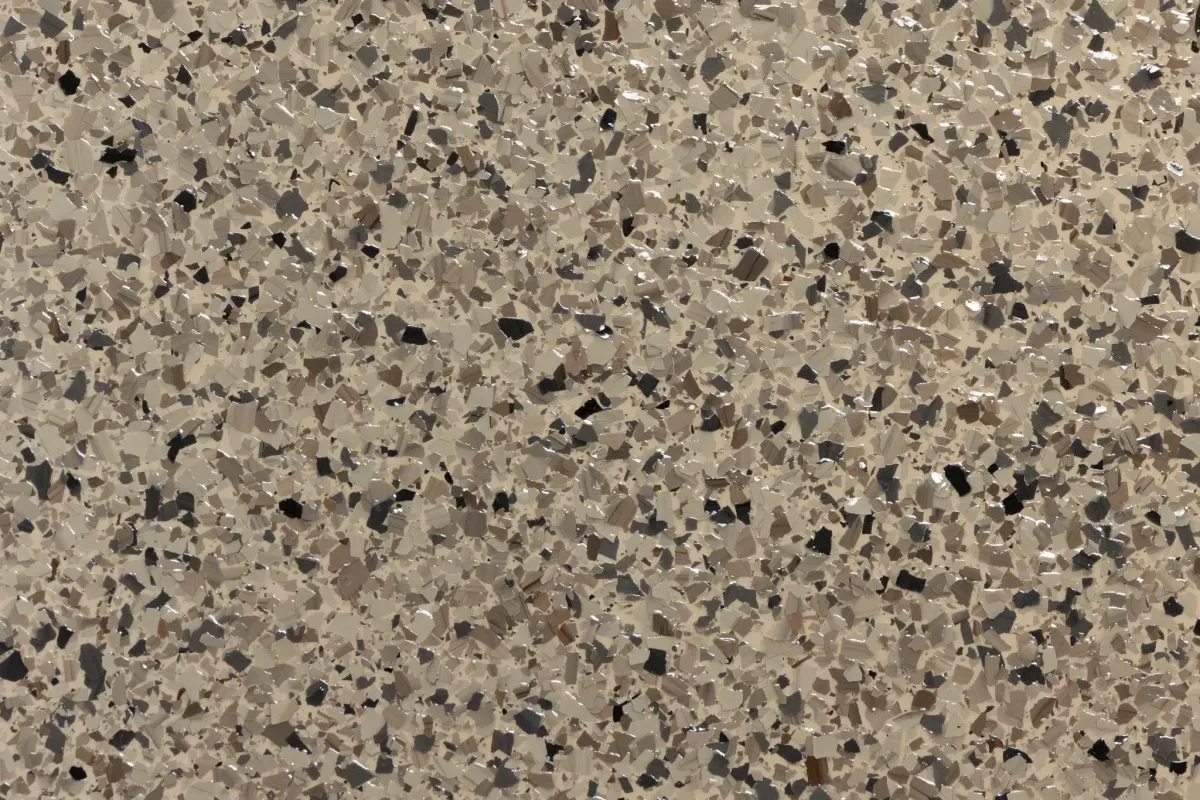
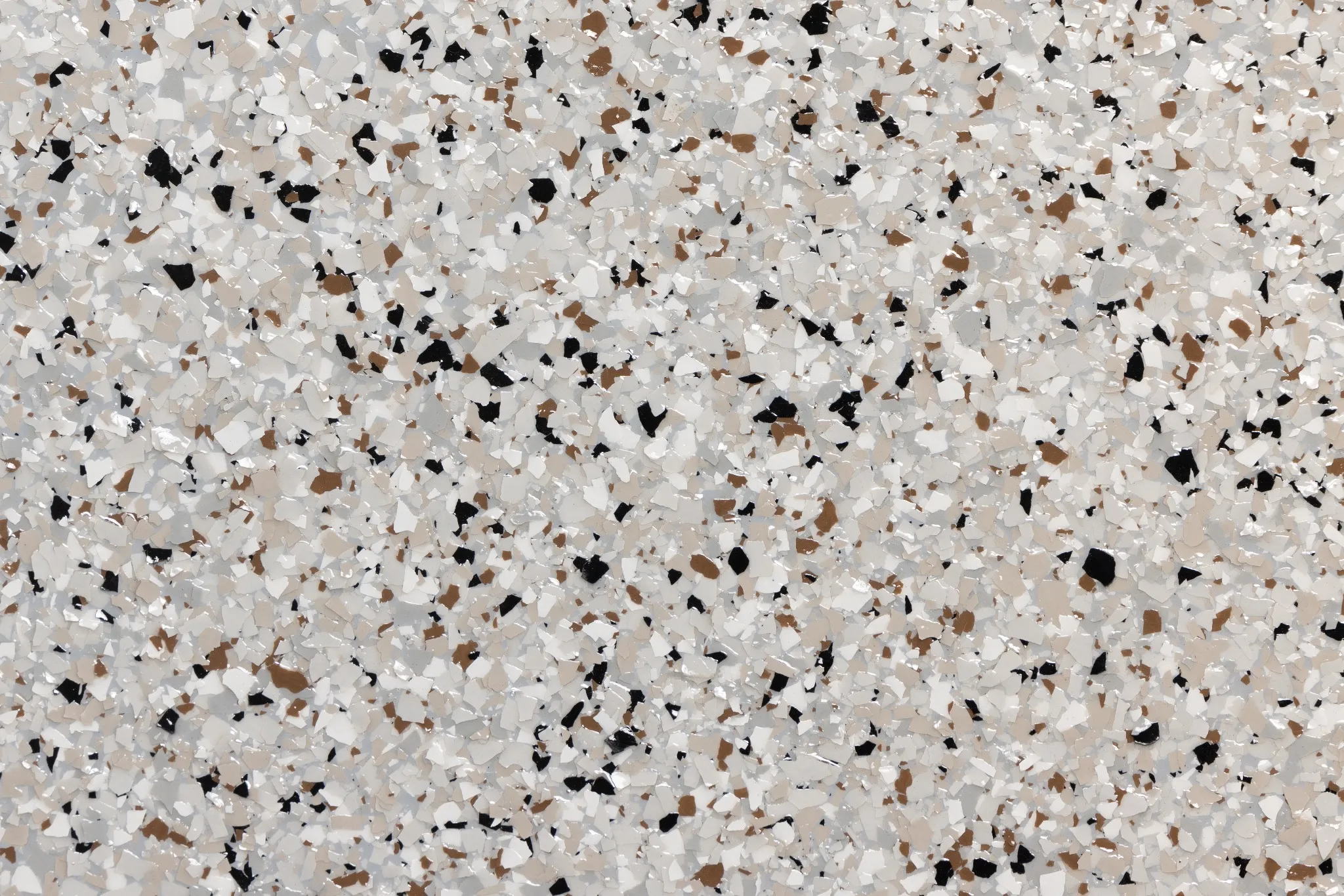
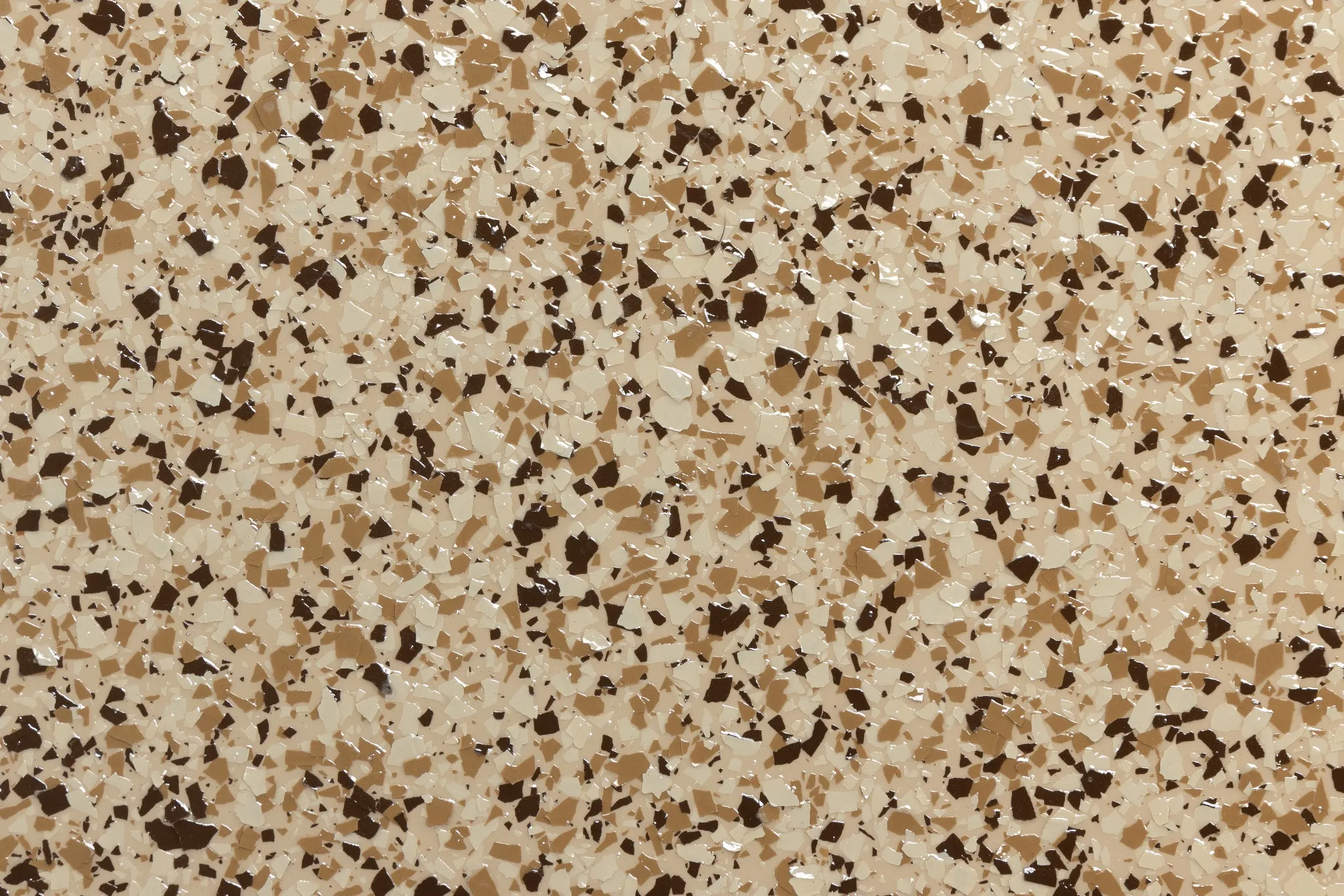
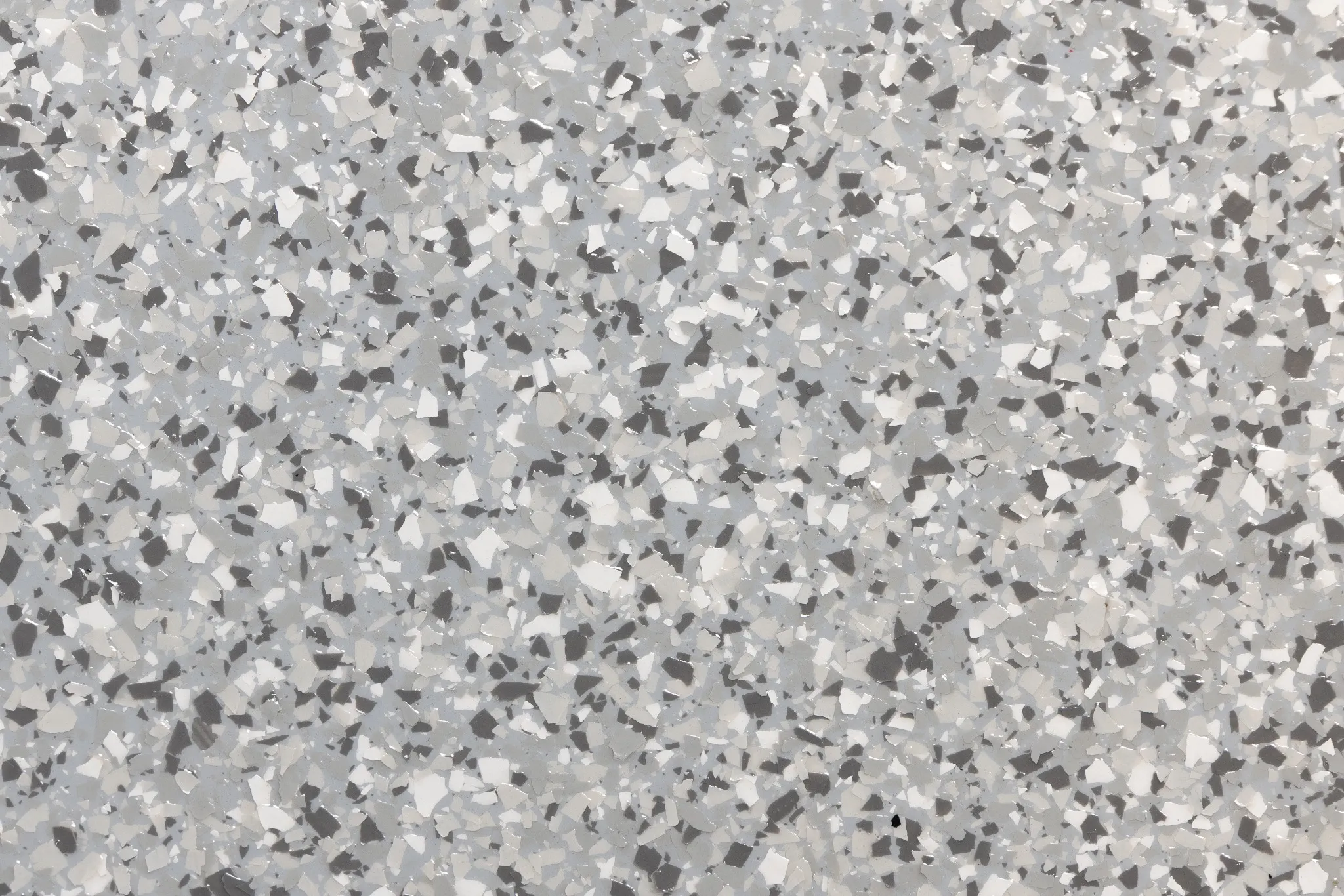
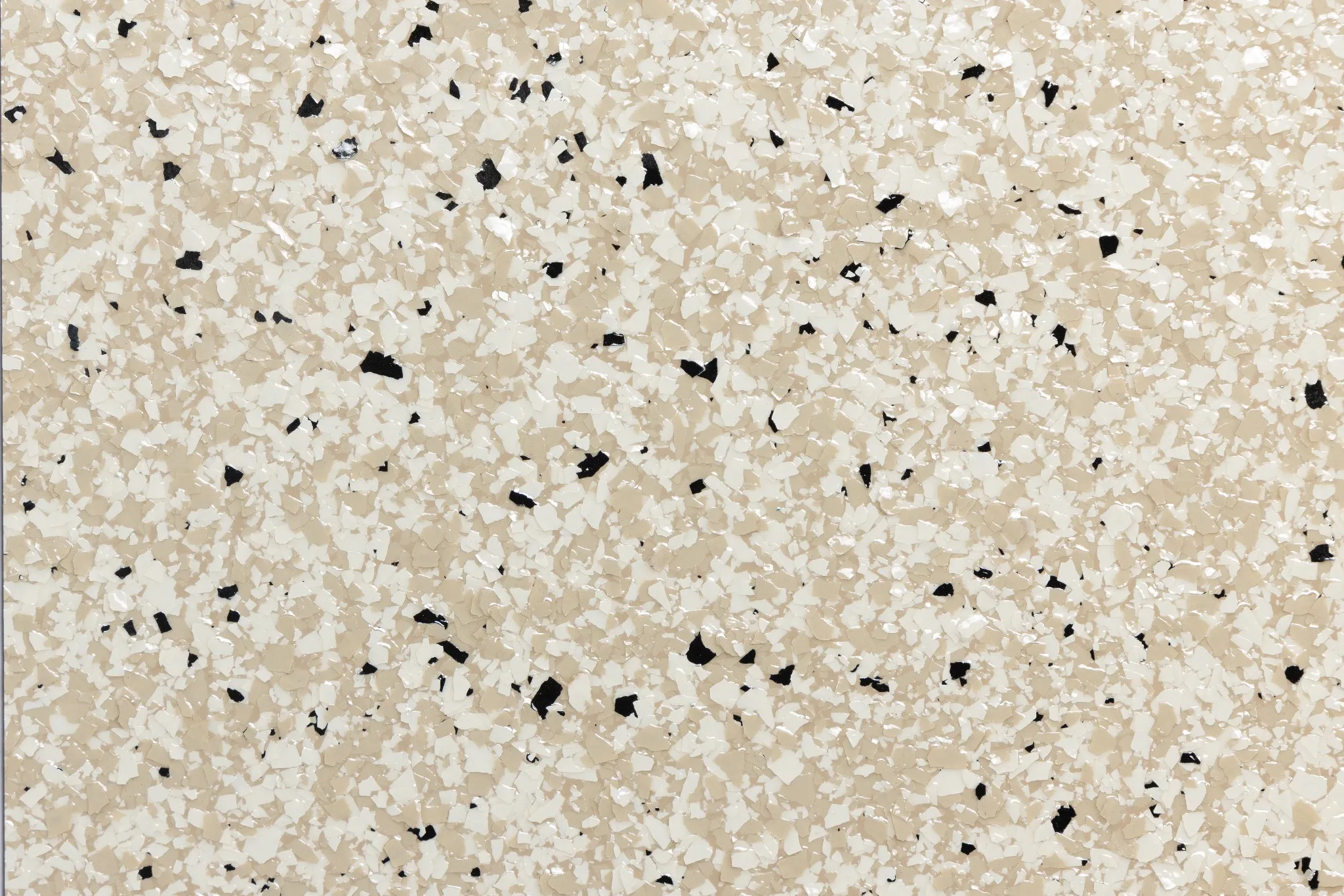
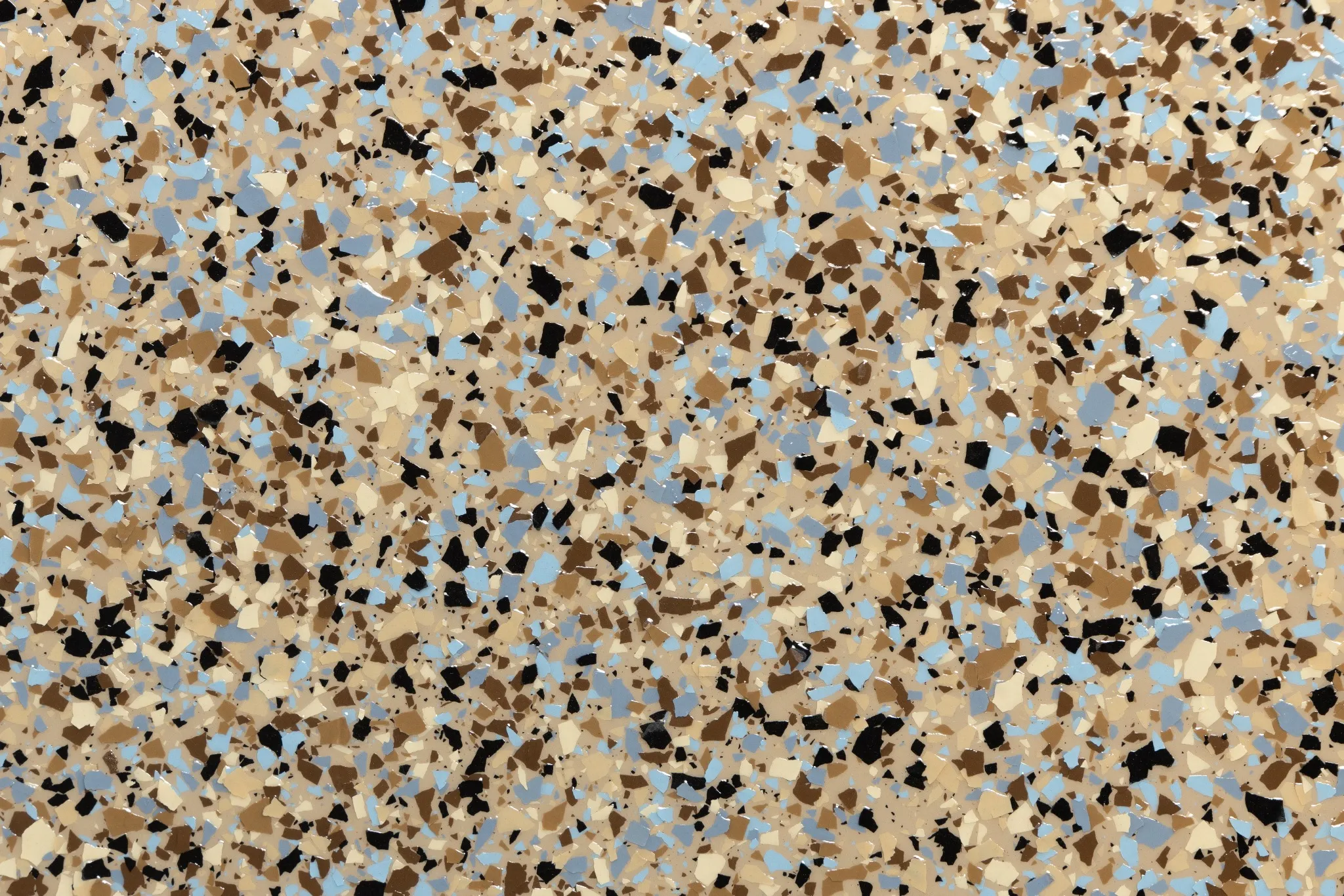
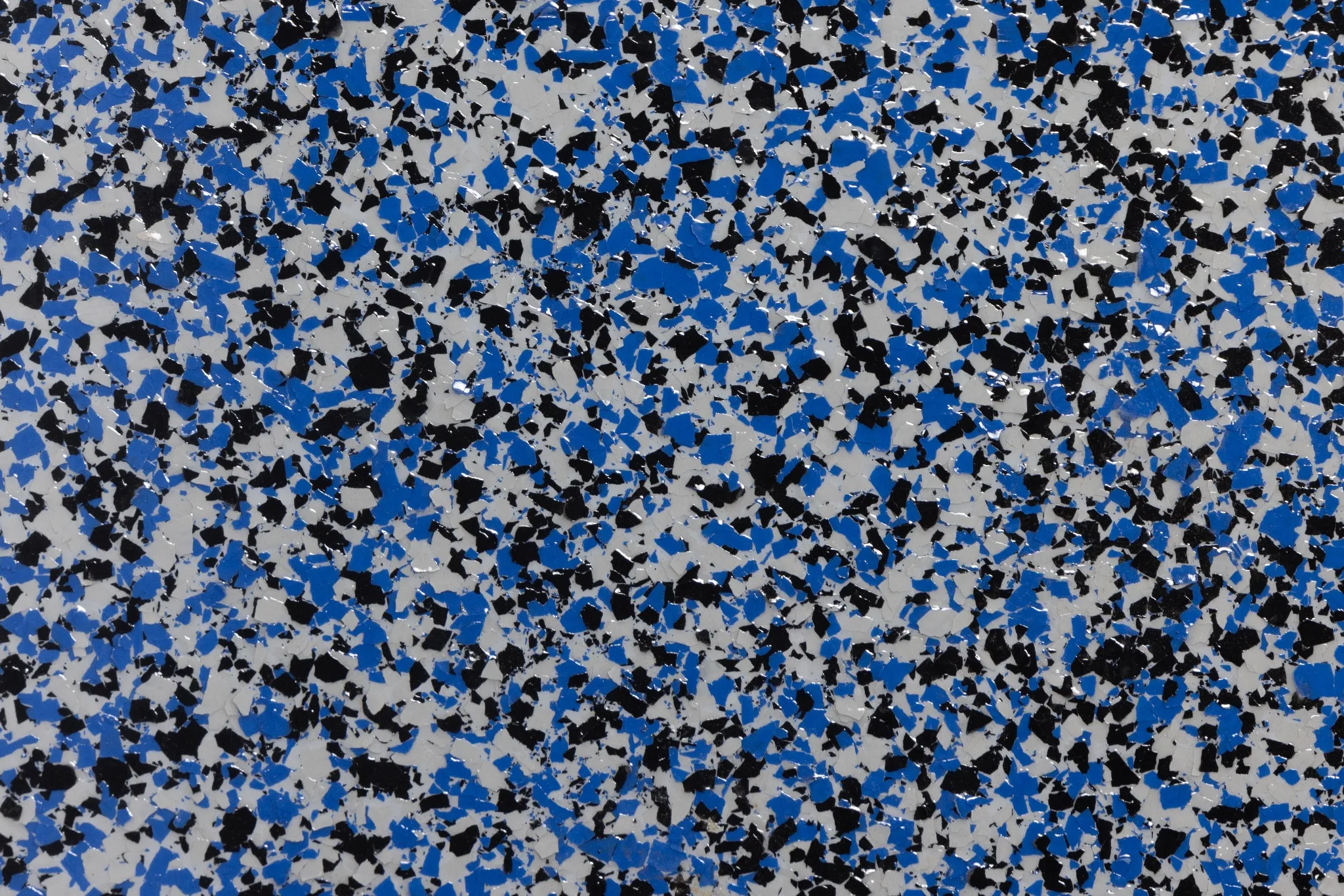
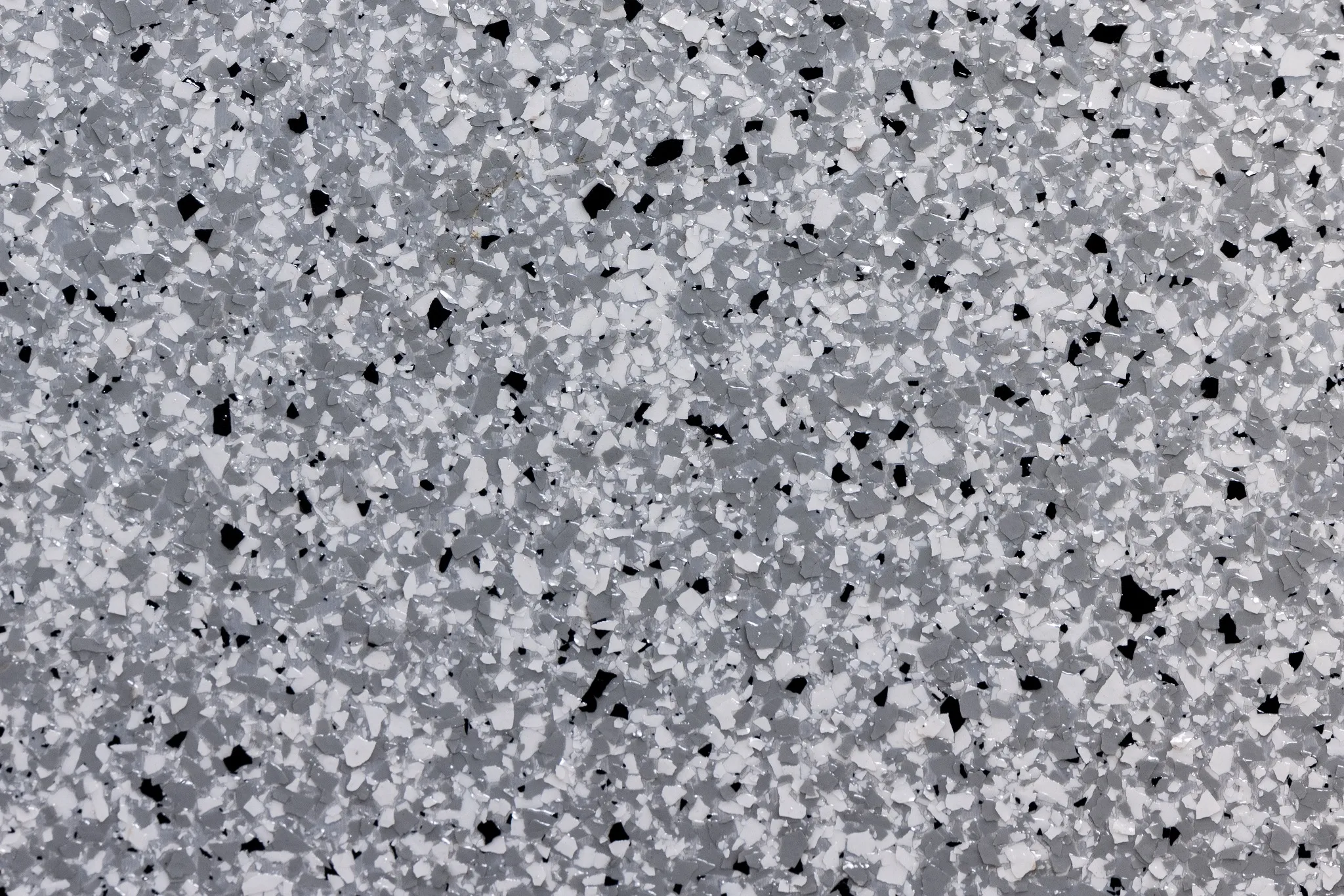
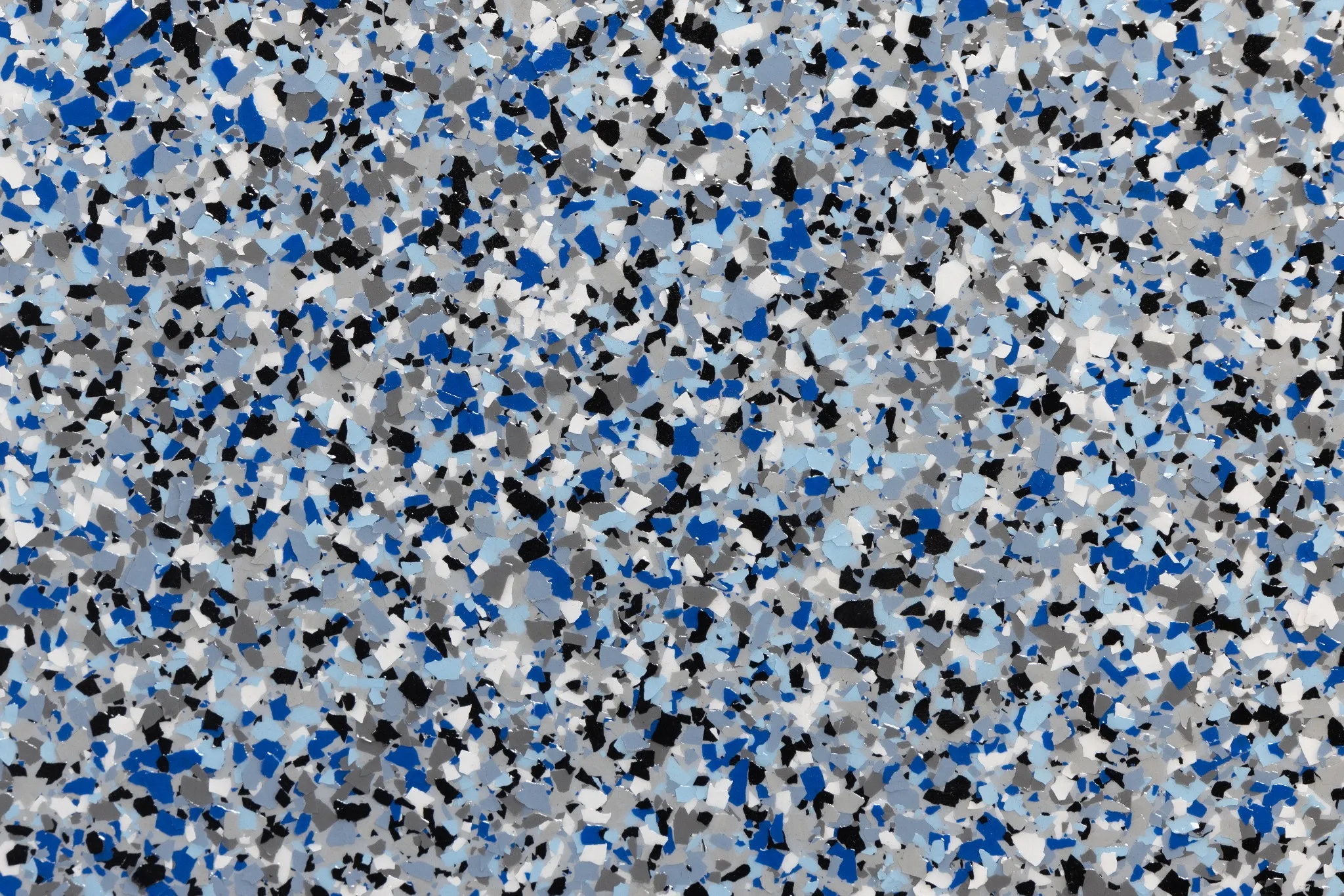

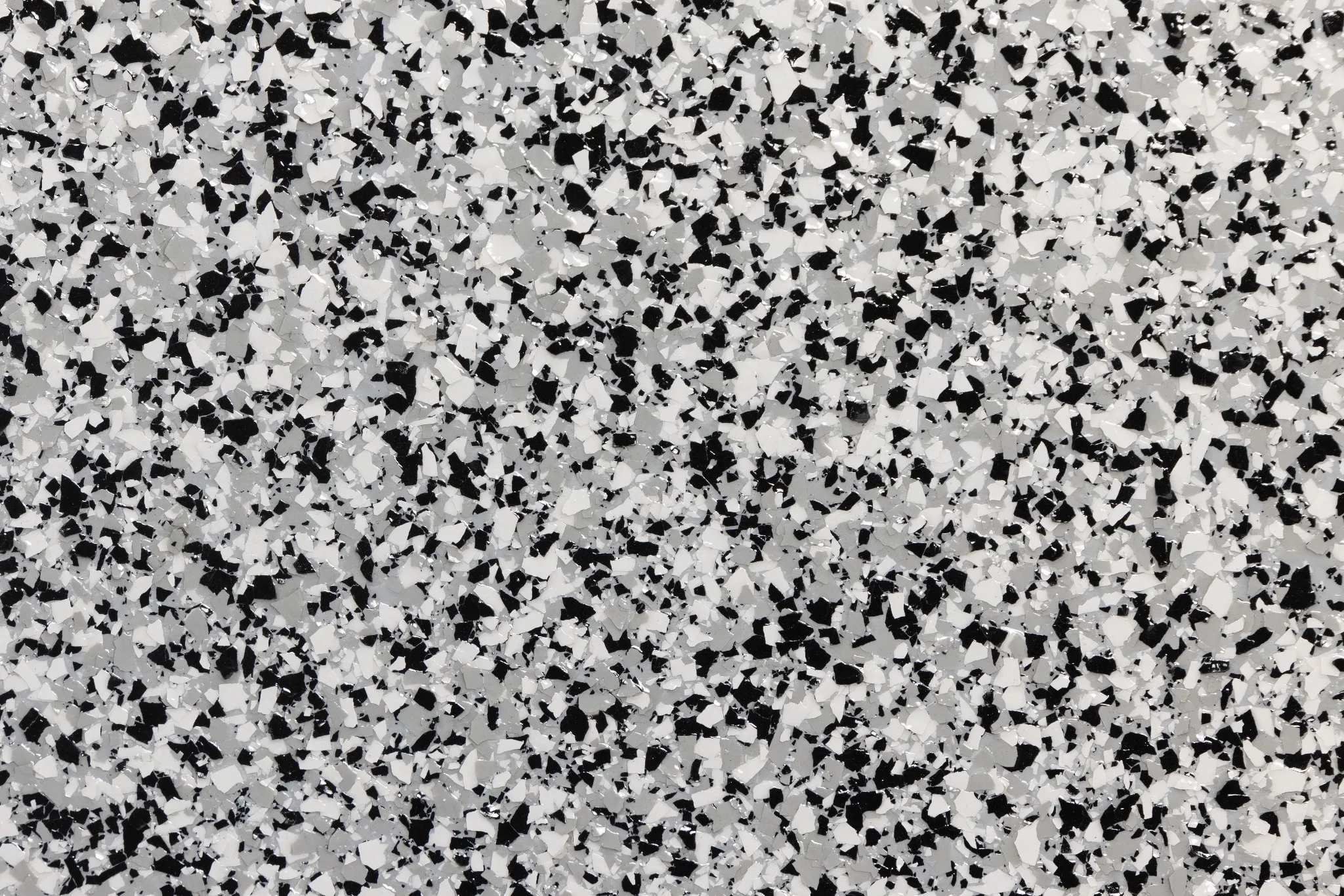
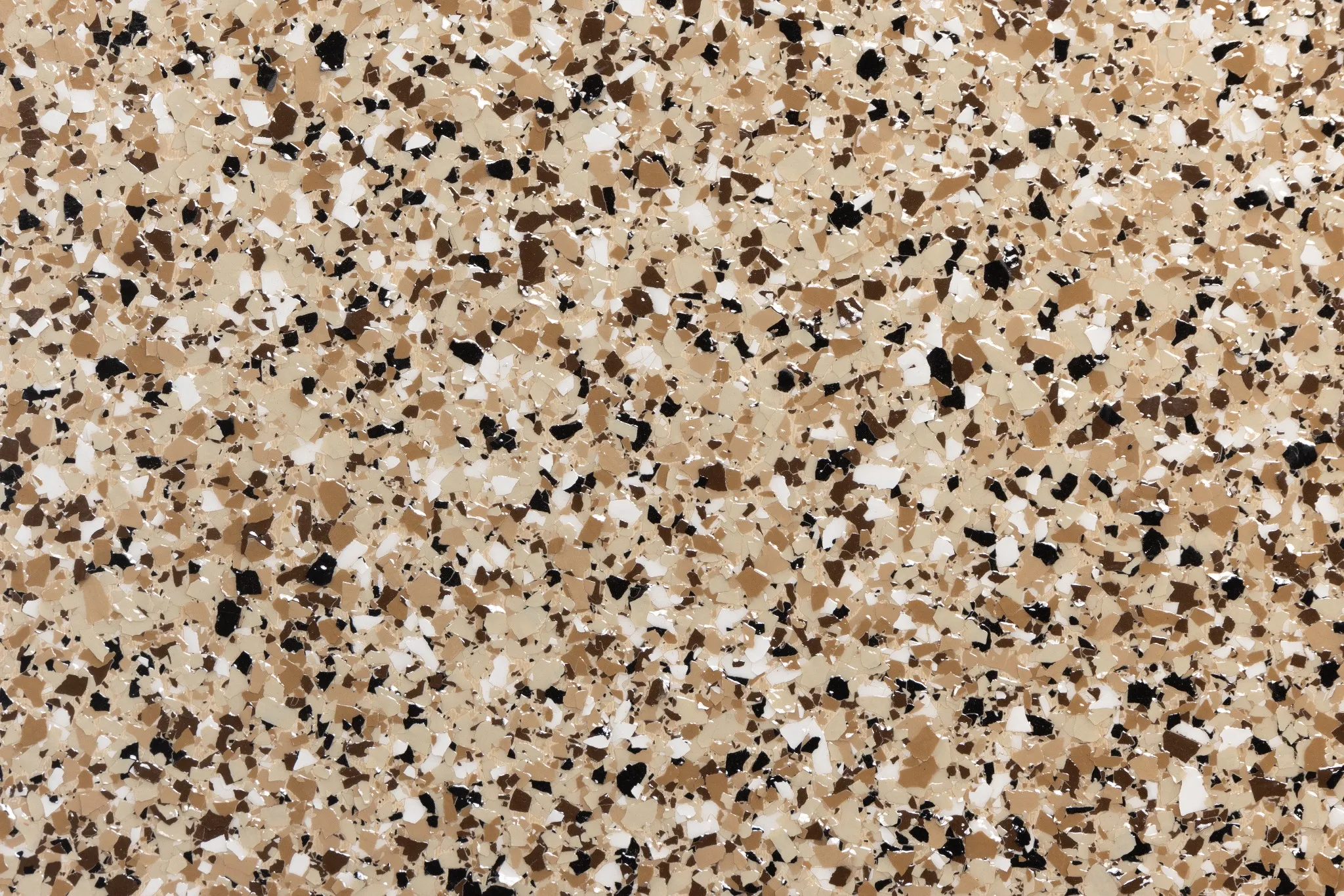
Every floor follows the same proven process. We start with the concrete, not the coating, so your new surface looks amazing and stays bonded for years.
We mechanically grind the concrete to open the pores, remove contaminants, and create the ideal surface for the coating to grab onto.
We fill cracks, pits, and problem joints with industrial repair products so the finished floor looks smooth and does not telegraph damage.
A high performance base coat is rolled out across the entire floor. This is what bonds deep into the concrete and supports the full chip layer.
We broadcast decorative vinyl chips across the whole surface until it is fully covered. This adds color, texture, and extra thickness.
After curing, we scrape the floor to knock down high spots and vacuum away loose chips so the surface is even and ready for the top coat.
A crystal clear, UV resistant top coat locks everything in, delivers a glossy and easy to clean finish, and protects your garage floor from daily abuse.
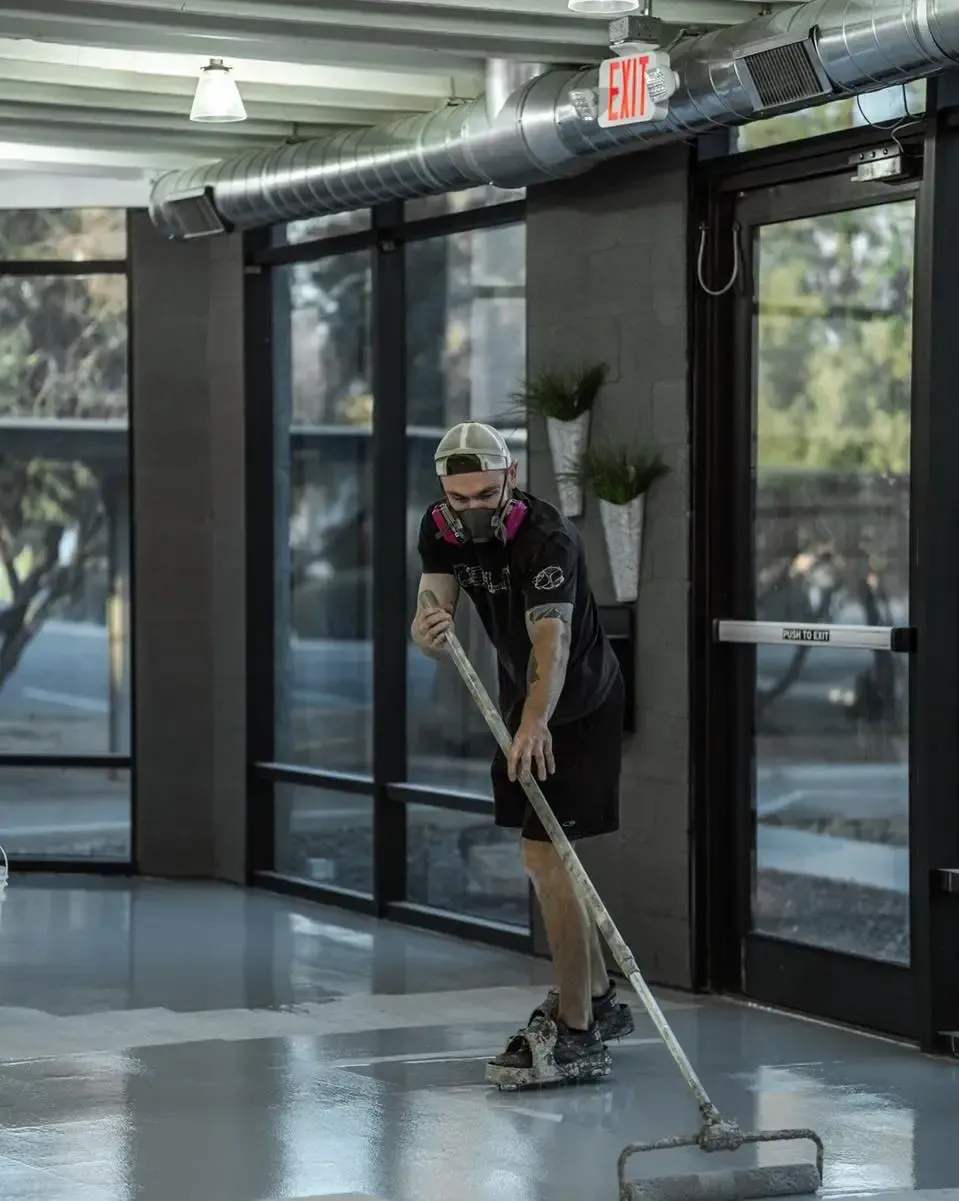
At Quick Response Garage Floor Coatings, we put customers first in everything we do. As a family-owned company with an A+ rating from the Better Business Bureau, we take pride in providing honest, reliable, and high-quality service from start to finish.
When you choose us, you can expect:
Licensed and insured professionals who take the time to educate you about your options
Transparent estimates and clear timelines before work begins
Top-quality materials and precise installation techniques for seamless, long-lasting finishes
Flexible financing options to make your project more affordable
Strong warranties that protect your investment for years to come
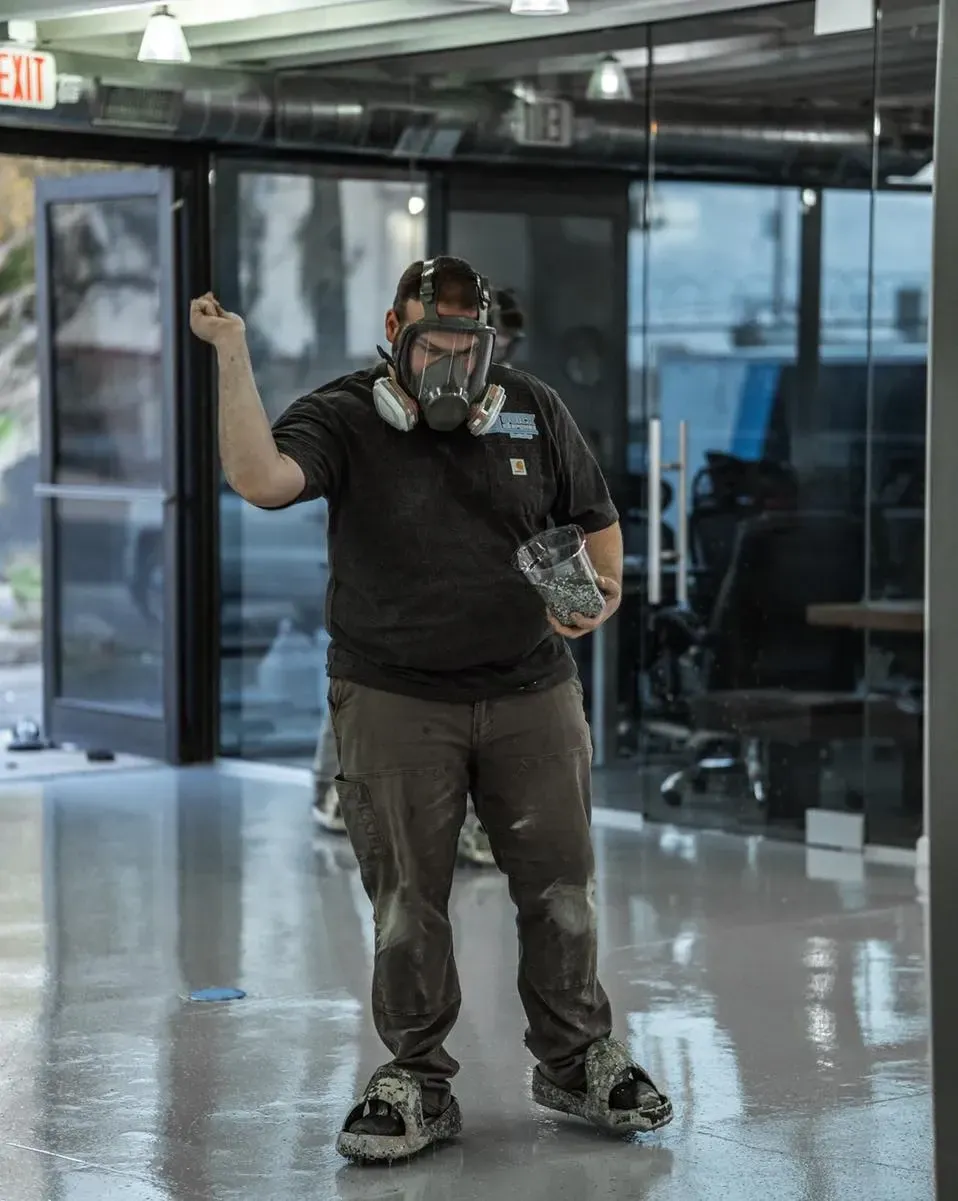
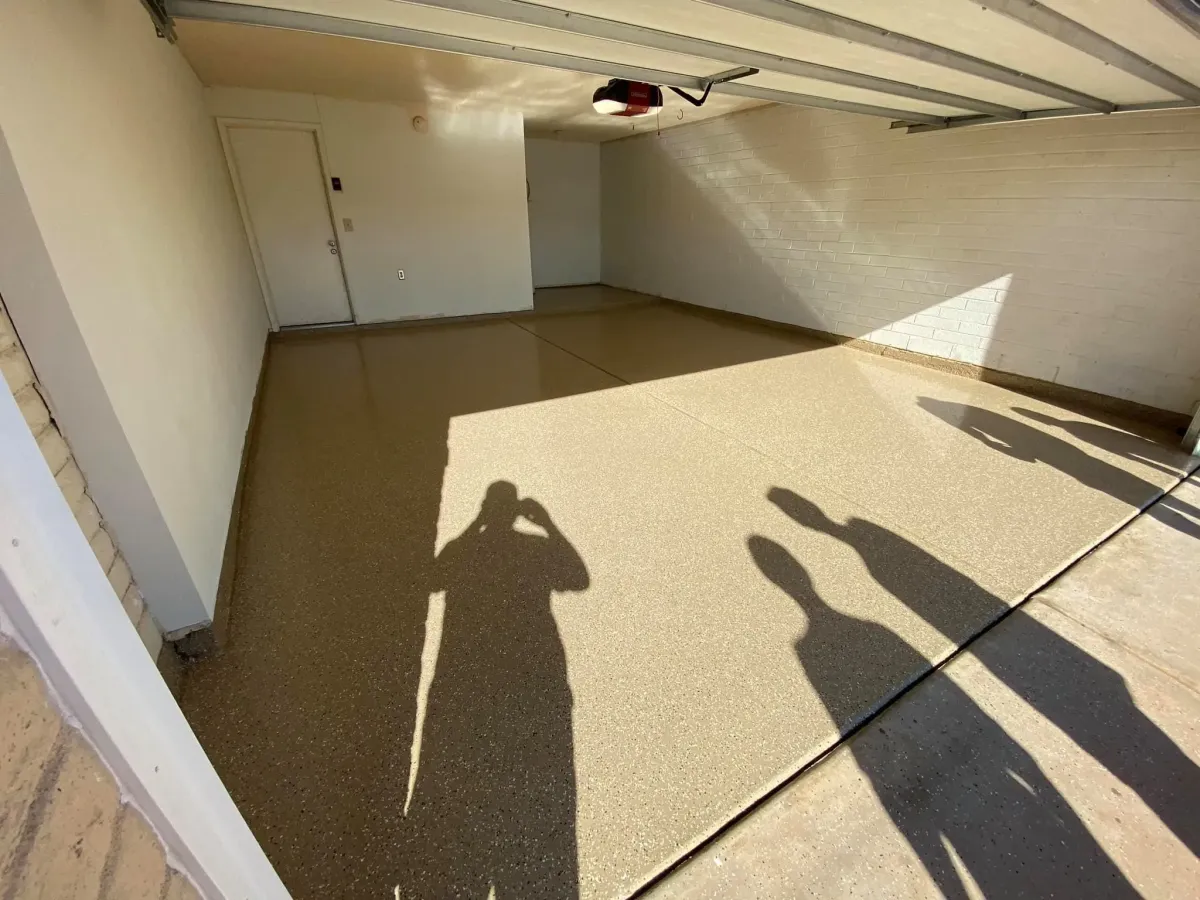
Quick Response Garage Floor Coatings is a locally owned garage flooring company in Phoenix that provides epoxy, flake, solid, and specialty options for residential, commercial, and industrial clients across the Phoenix metro area and Maricopa County.
Since 2010, our team has delivered durable, stain-resistant solutions to countless customers. We welcome the opportunity to count you among the many people who have put their trust in us.
Get started by requesting a free estimate today! Call (602) 351-5543 or get in touch through our online contact form. Weekend appointments are available for your convenience.


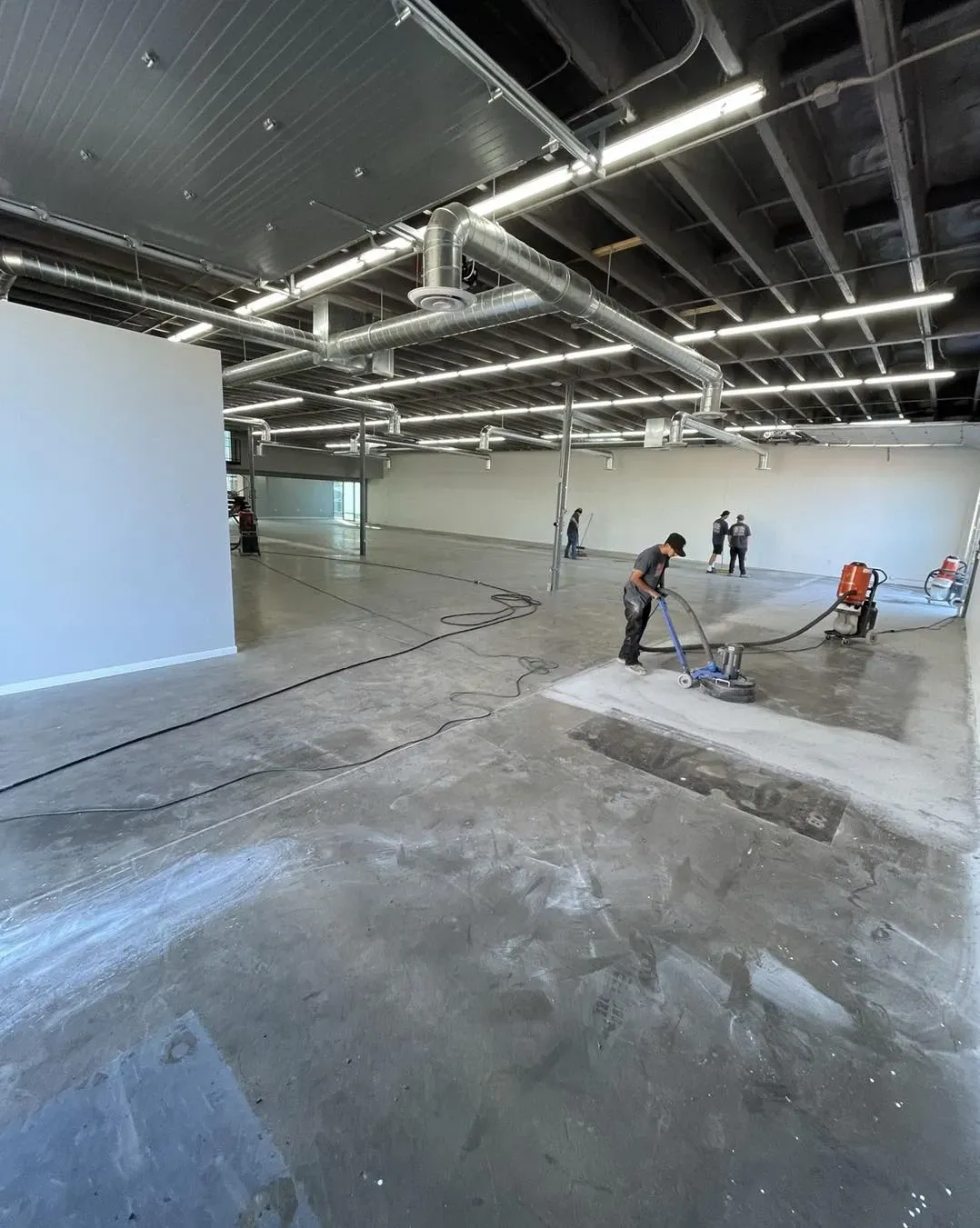
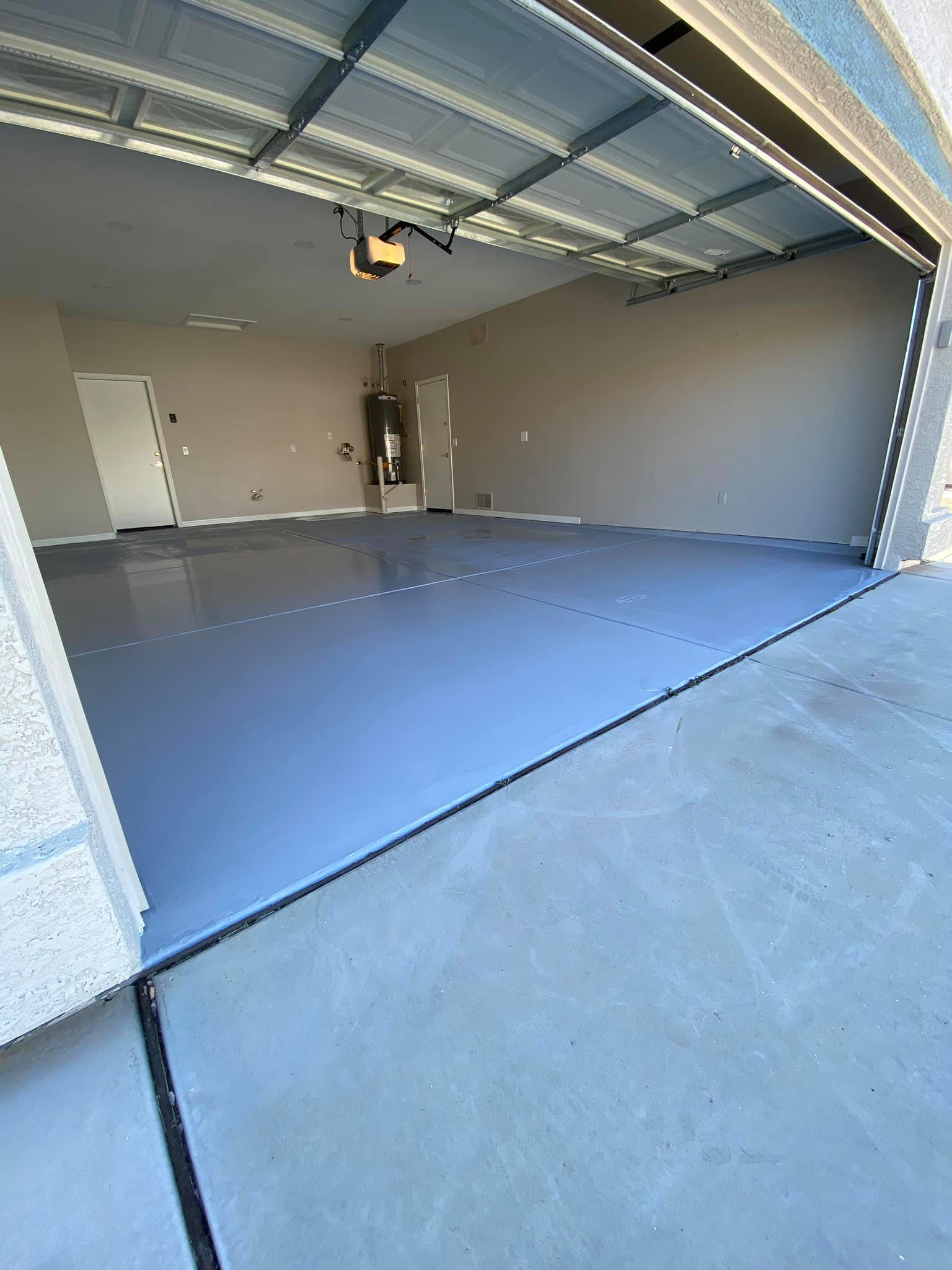
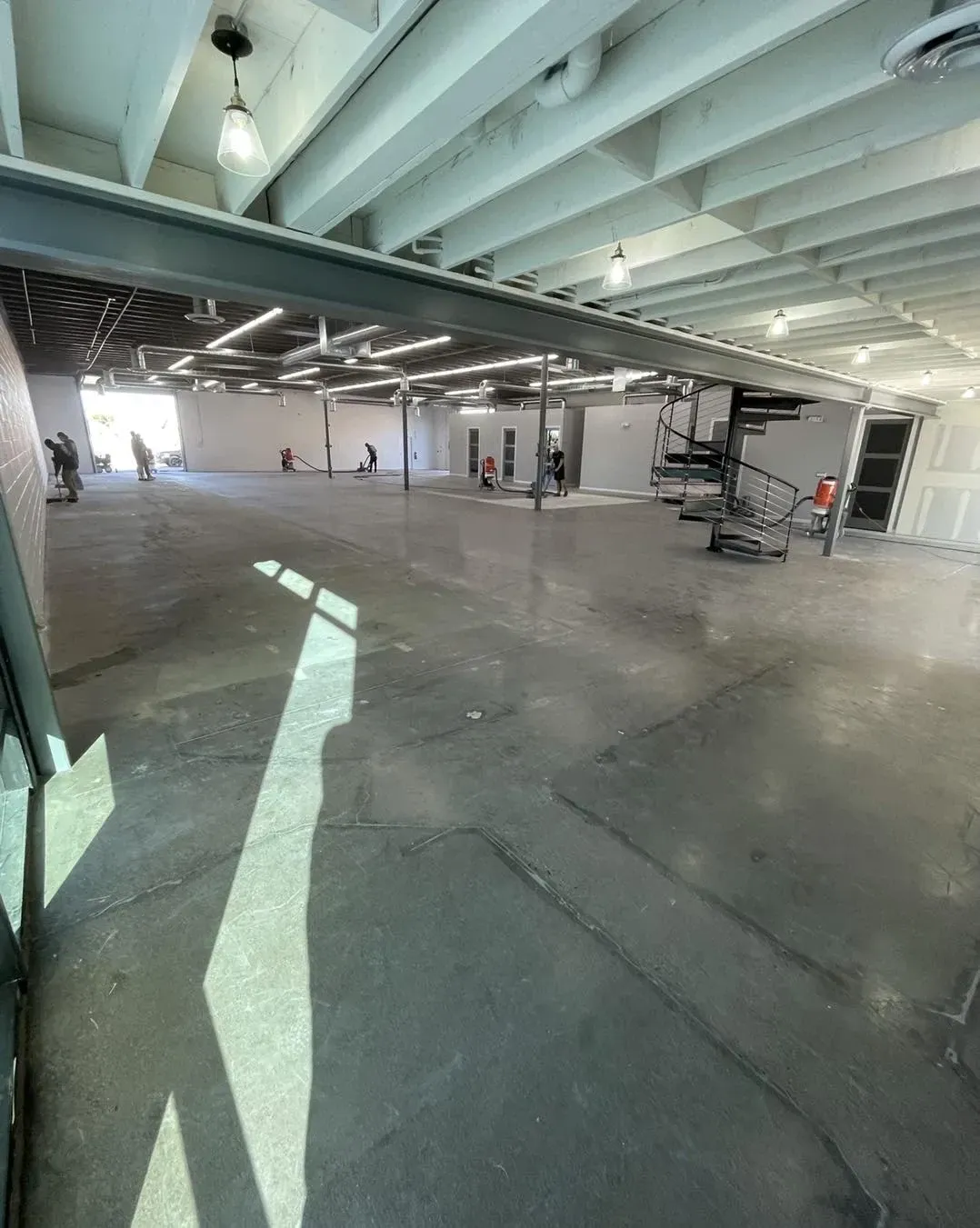
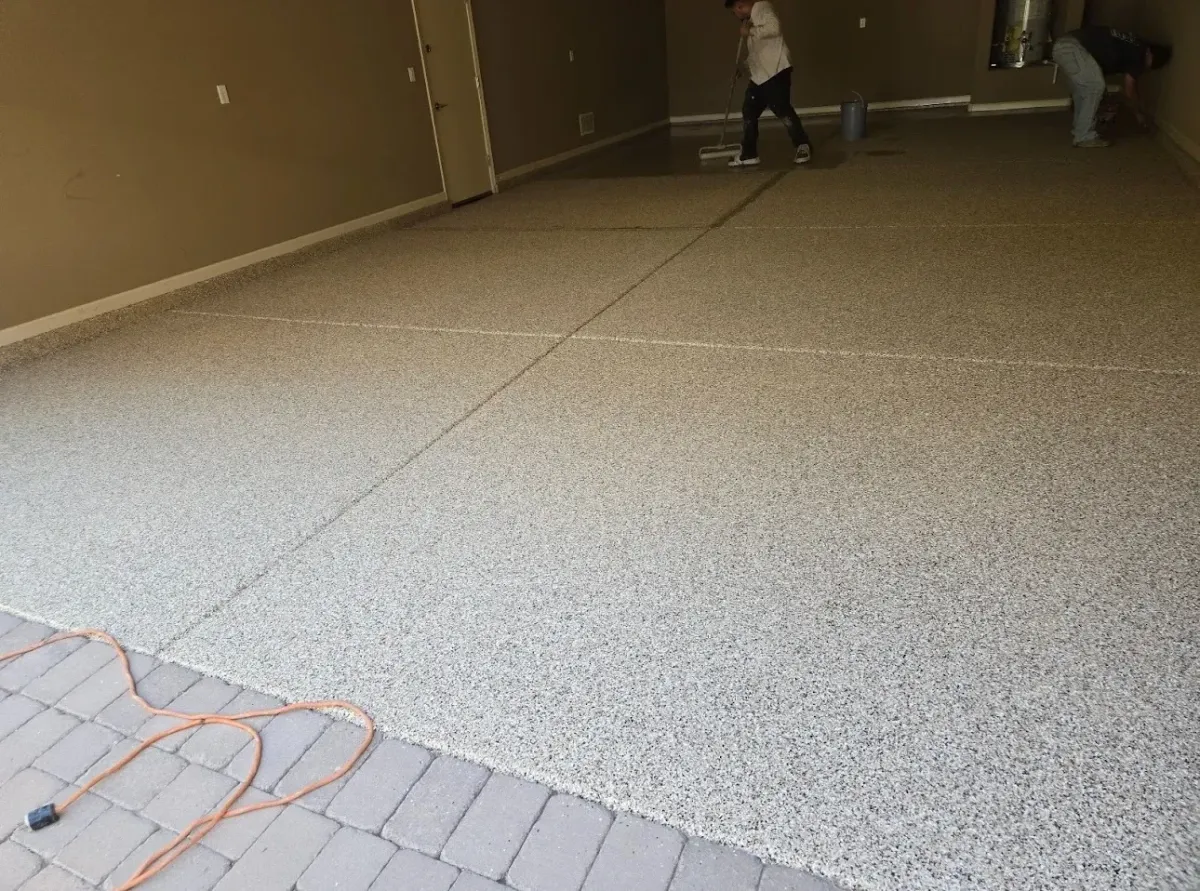
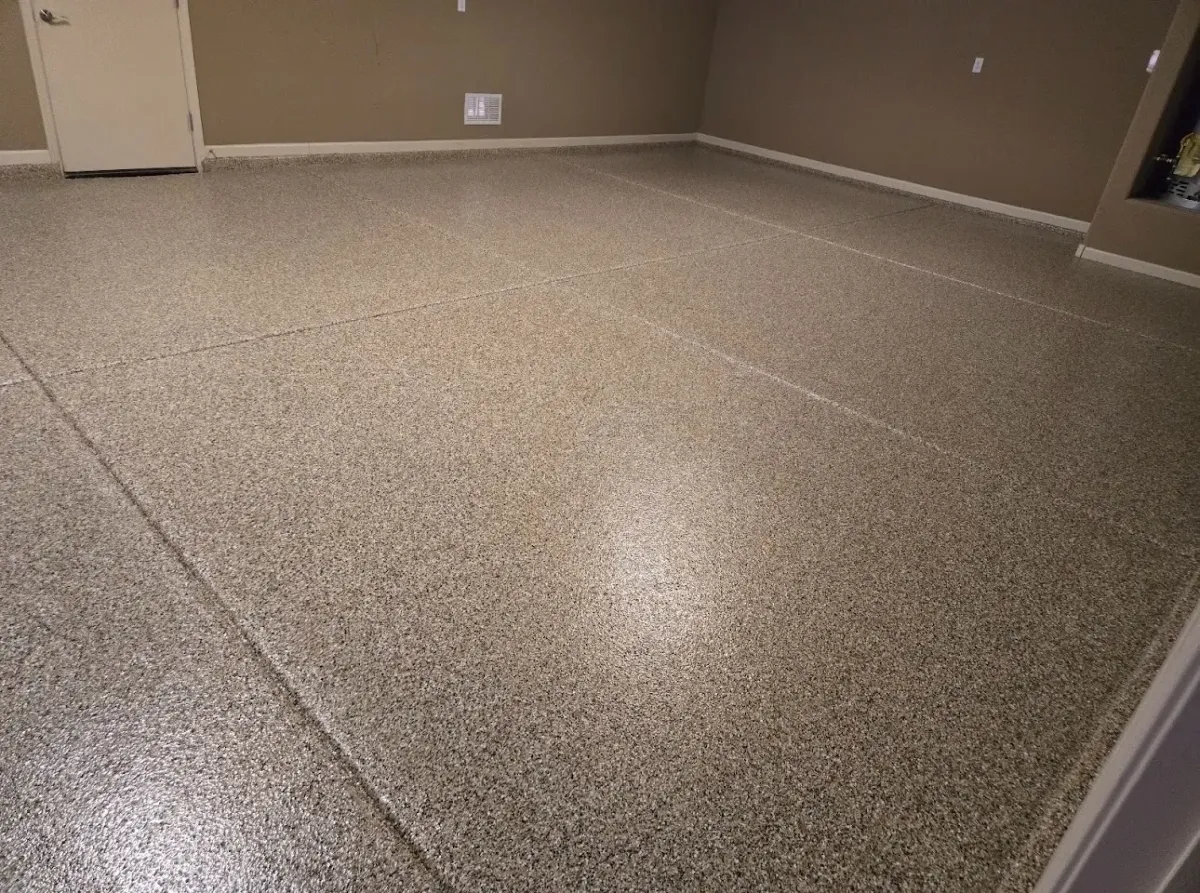

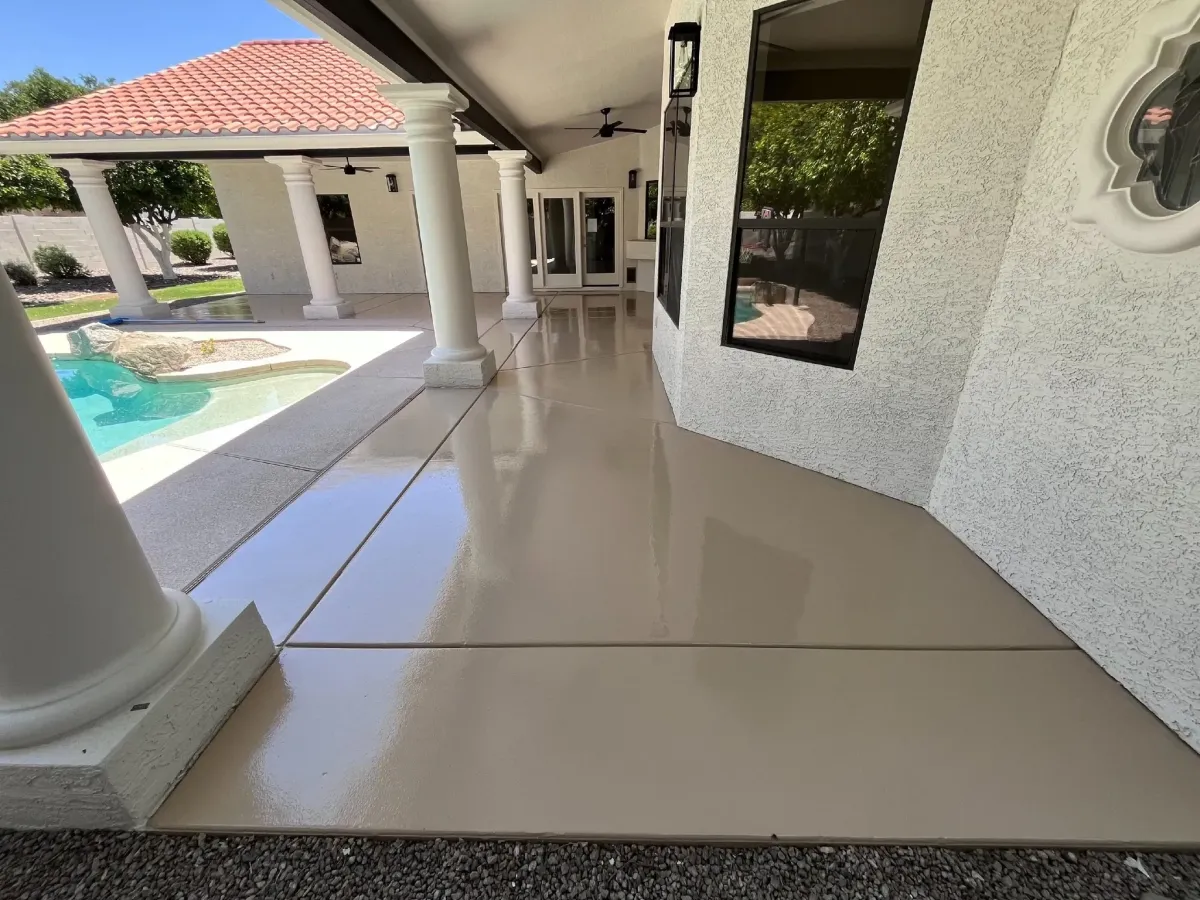

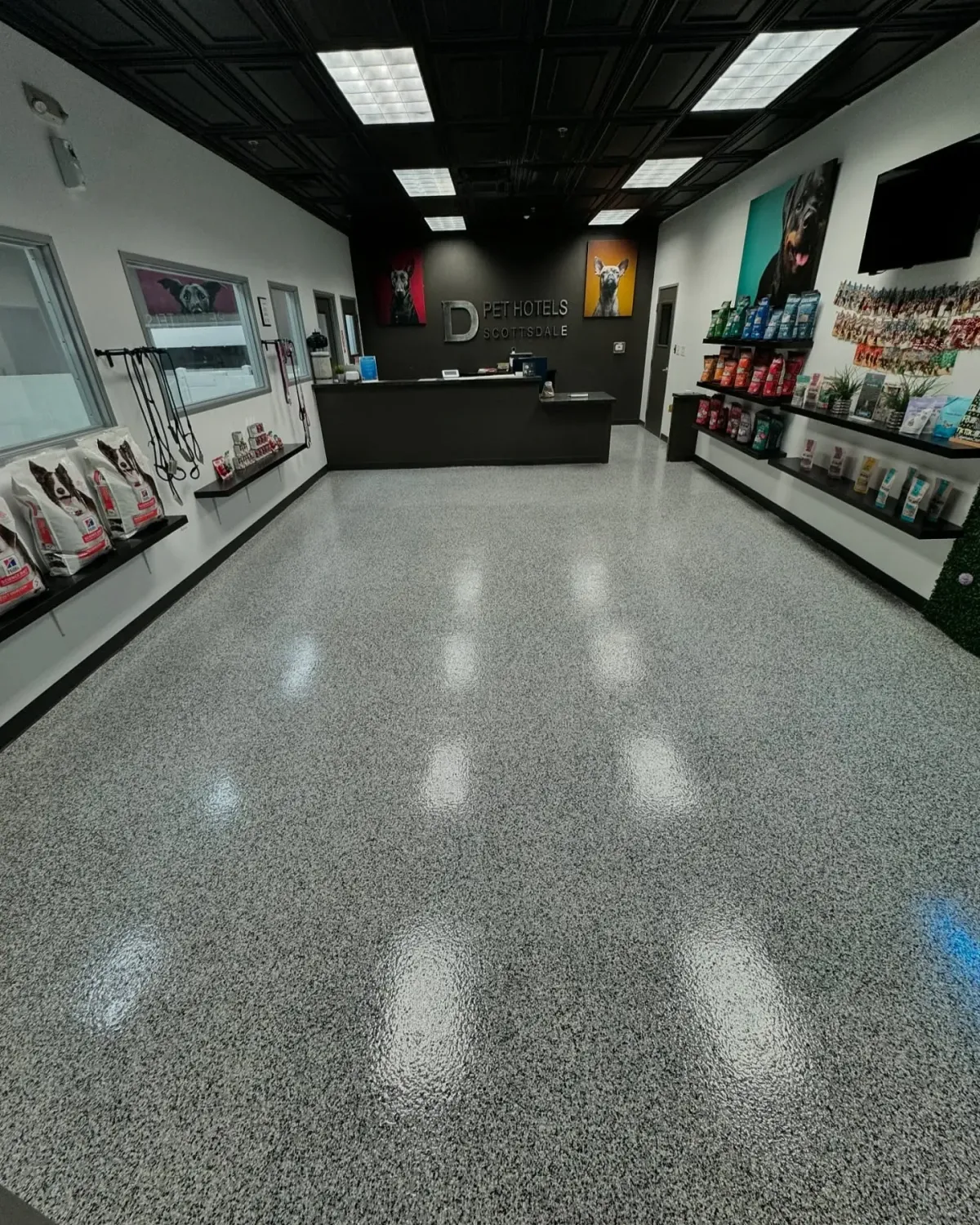
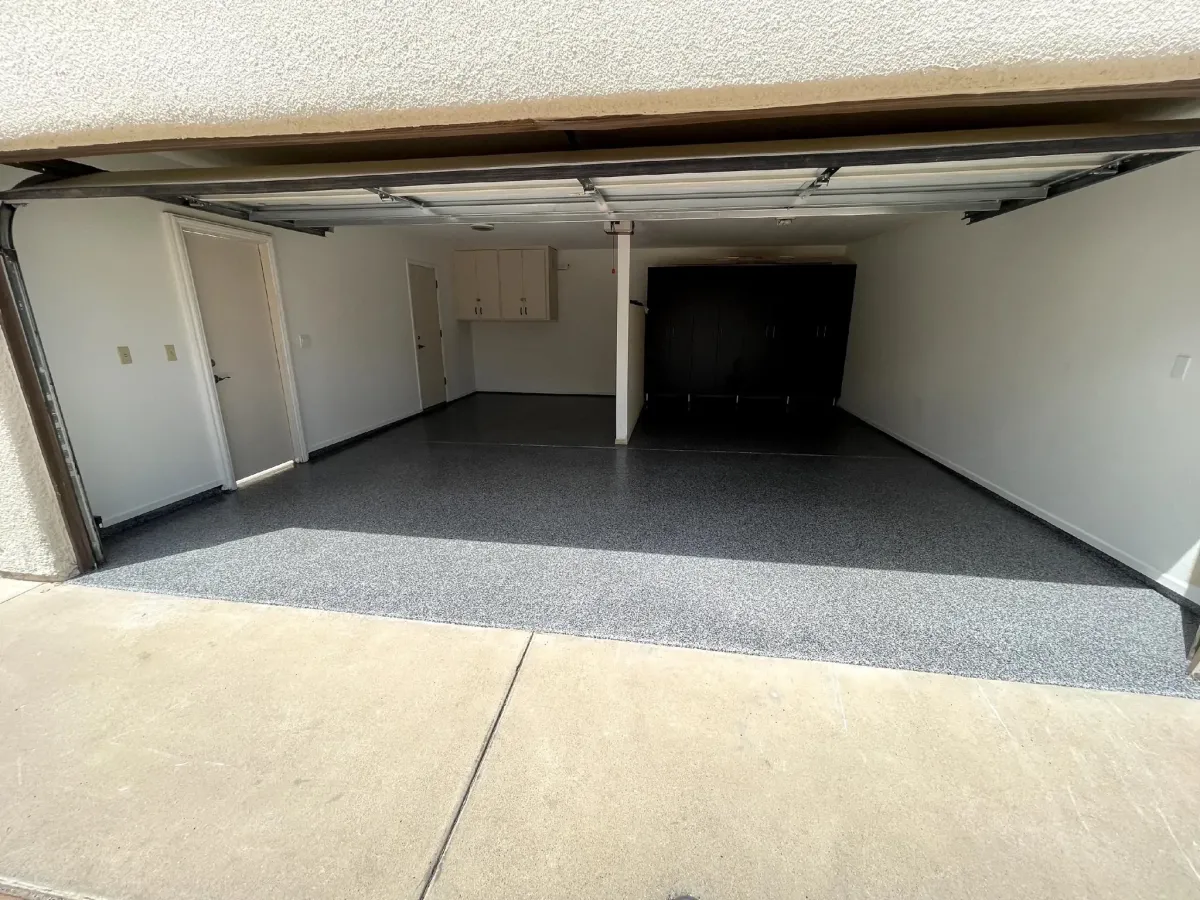
Fast efficient, clean about it..and looks so good, they patched and sanded off the old surface , very happy done in three hours , polyaspartic coating on our patio/ driveway you can tell they were very experienced..

Well, this is my third rodeo with them. And it's always great work. And quickly takes about 4 days before you can walk on it. But it's worth the wait.

Outstanding. Prepared the floor sealed a couple of cracks, looks amazing. Cannot beat the service and professionalism. Use these guys!

Crew called in advance and let us informed of everything that they did. Very pleased

Clear communication throughout. Techs are knowledgeable, personable, and respectful. I'd definitely recommend to others.

They did such a great job! There were one time, very professional and the floor looks amazing.

Brett and Jose completed our epoxy in our garage from the begging they were professional, kind and hardworking. They walked us through every step and the outcome is AMAZING! We are so happy with our new flooring .. thank you Brett and Jose for all that you do!

I had them patch a spot I had blocked off during the initial install of the epoxy floor, and they were able to match it and blend the newer patch in perfectly with the rest of the floor! Thank you guys!

The staff at Quick Response were very professional from the quoting and eventual completion of our garage floor. They took the time to answer questions and were clean and thorough in their process. Garage floor looks incredible. Would highly recommended their services. Thank you.


Quick Response Garage Floor Coatings is proud to serve Phoenix, Arizona and other surrounding areas throughout Maricopa County.
Goodyear
Peoria
Glendale
Phoenix
Surprise
Gilbert
Chandler
San Tan Valley
Tempe
Ahwatukee
Queen Creek
Litchfield Park
Tolleson
Paradise Valley
Sun City
Buckeye
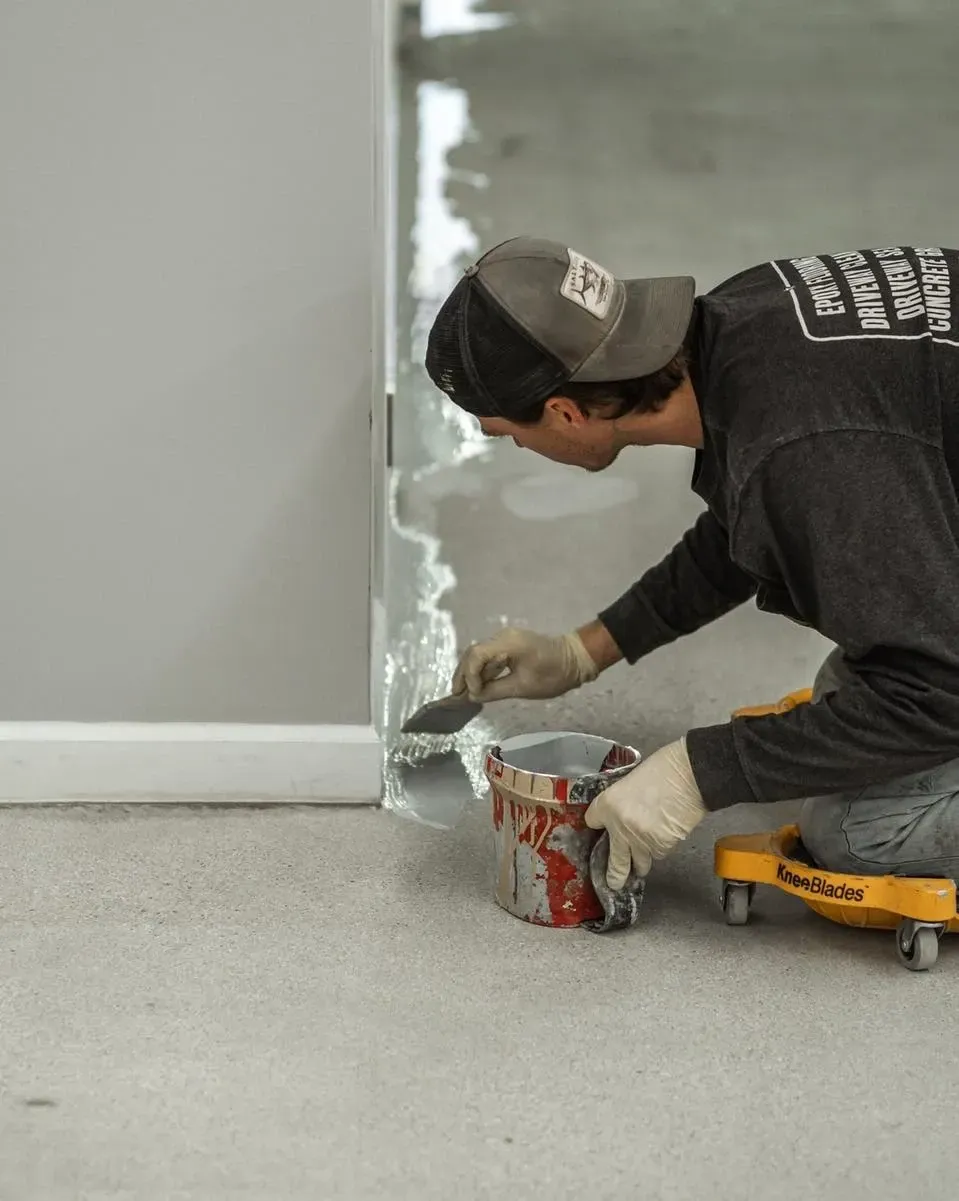

Our reputation speaks for itself. Browse our reviews page to see what other homeowners say about working with our team of garage flooring experts.
Want to see what your new garage floor could look like? Visit our photo gallery or use our online visualizer tool to preview your design before we get started.
Our coatings and refinishing solutions are suitable for residential, commercial, and industrial applications.
Whether you want to preserve your home's garage flooring, safeguard your commercial space's floors, or update your industrial facility with a long-lasting floor coating, we have you covered.
Ready to upgrade your garage? Contact us today for your free estimate and discover why homeowners trust Quick Response Garage Floor Coatings for lasting, high-quality results.
Got questions? We’ve got answers.
Get simple, honest answers about our epoxy floors, flake flooring, installation process, and what to expect.
Most homeowners are surprised by how big the difference is. A DIY kit usually sits on top of the concrete surface like paint, which means it can peel, chip, or fade fast. Our garage flooring company uses professional epoxy flooring and polyaspartic floor coatings that bond deep into the concrete floor.
This gives your garage floor a durable, stain resistant, UV resistant surface that stands up to oil, brake fluid, dust, and daily use. Whether it’s an epoxy garage floor, epoxy flake flooring, metallic epoxy, or a full chip system, our coatings are built for residential homes, commercial properties, and even industrial properties. You get a solid floor covering that looks great and lasts.
Most garage floors in Phoenix, Cave Creek, Fountain Hills, Paradise Valley, Sun City, and the rest of Maricopa County can be completed in one day, depending on the size of the garage and the condition of the concrete surfaces.
Our installation process includes concrete repairs, grinding the concrete surface, applying a strong base coat, broadcasting flake flooring, and sealing everything with a durable top layer. Because we use insured professionals and commercial-grade equipment, your new epoxy floor cures fast and is ready to handle the heat, dust, and stains common in Phoenix AZ.
A properly installed epoxy floor is one of the most durable flooring services available for garages, patios, driveways, and walkways. It’s highly resistant to stains, hot tire pickup, oil, brake fluid, and other chemicals that damage less resistant surfaces.
Our epoxy floor coatings and polyaspartic systems are strong enough for industrial flooring and commercial epoxy flooring, so they easily handle residential use. With a quality top layer and proper maintenance, your new epoxy floor can look great for many years.
We offer a wide range of options so you can match your house, garage, patio, or any concrete surface. Popular choices include epoxy flake flooring, full chip designs, metallic epoxy, solid colors, and custom blends.
Whether you want something simple or a standout look, we help you choose a floor coating that fits your space and style. Every project includes a free estimate and a clear explanation of the entire process.
We add texture to your floor coatings using flake, which helps your epoxy garage floors stay safe even when wet. Because the flakes are broadcast into the base coat and sealed with a strong top layer, your garage floor coating becomes a stain resistant, safe, and easy-to-maintain surface. This works great for garages, patios, walkways, and concrete flooring around your home.
Absolutely. While many homeowners contact us for epoxy garage floors, we also coat patios, driveways, commercial properties, industrial flooring, and interior concrete floors.
Epoxy floors and polyaspartic coatings are a great choice for residential homes that want a clean, easy-to-maintain space. We also help businesses in Phoenix AZ and Maricopa County get long-lasting resistant surfaces that can handle high traffic.
Maintenance is easy. Because epoxy garage floors and concrete polishing create a hard, stain resistant surface, all you need is a mild cleaner and water. Oil, stains, dust, and dirt wipe away fast.
There’s no need for sealing every year like less resistant surfaces. Just avoid harsh acids and you’ll keep your floor looking great. If you ever need repairs or touch-ups, our team is here to help.
Getting started is simple. Just contact our garage flooring company and we’ll walk you through the estimate process. We look at your garage floor, patio, driveway, or concrete flooring and explain the installation, coatings, and color options.
We provide free estimates for homeowners across Phoenix, Paradise Valley, Cave Creek, Fountain Hills, Sun City, and all of Maricopa County. You’ll get a clear price, a simple overview of the project, and honest guidance from insured professionals who take pride in doing an excellent job every time.
Tell us about your garage floor and the look you want, then we’ll schedule a free estimate together.
Our insured team prepares your concrete, installs your coating, and completes the entire project with professional care.
Step into a clean, durable, great-looking garage floor that’s easy to maintain and built to last for years.

Step 1
Get in Touch

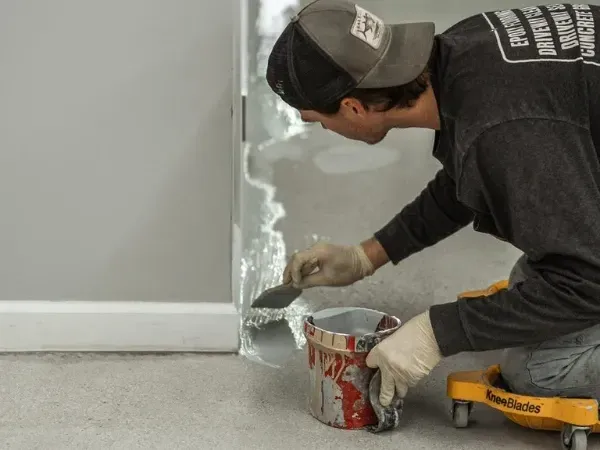
Step 2
We Work

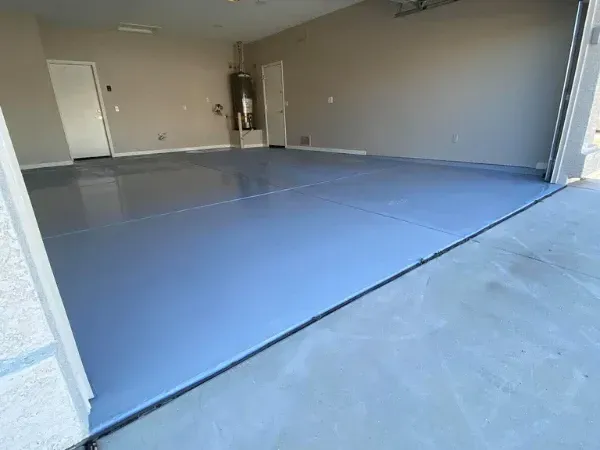
Step 3
Enjoy

Tell us about your garage floor and the look you want, then we’ll schedule a free estimate together.
Step 1
Contact Us

Our insured team prepares your concrete, installs your coating, and completes the entire project with professional care.
Step 2
Get in Touch

Step into a clean, durable, great-looking garage floor that’s easy to maintain and built to last for years.
Step 3
Enjoy


Reliability
We show up on time, do the work right, and keep your garage stress-free.

Integrity
You get honest pricing, clear communication, and flooring work done exactly as promised.

Service That Stands Out
Friendly team, fast turnaround, and garage floors that look great and last for years.
License #: 329275